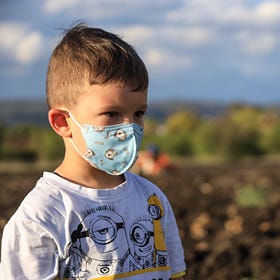Inflammation — Like It Or Not, It’s Here To Stay.
It’s one of those classic situations where too much of it isn’t good, but too little of it ain’t good either.
It would suffice to say that the word “inflammation” is causing quite a stir these days. When we’re injured, for instance, the site of injury is experiencing acute inflammation, and that contributes to unpleasant sensations of pain and swelling that we can feel until the injury has been healed. Ditto, when we do catch a bout of the flu as well.
We don’t like those feelings of discomfort, and we do get prescribed anti-inflammatory drugs to quell the painful sensations somewhat.
At the same time, we do know that some of those chronic diseases such as Type 2 diabetes and heart disease have some form of inflammation associated with their presence too. We’re afraid of that happening to us.
Some of us would then look at tinkering with our diets. An anti-inflammatory diet, for instance. Trying to sleep better. Doing some meditation. Reducing stress. Whatever it is that can help to “reduce inflammation” in our lives.
But what’s so important about the inflammatory response? It is creating quite a fair bit of drama in most people’s lives today, and the problem is that most methods to “reduce inflammation” don’t even provide a holistic understanding of the drama behind inflammation in the first place.
If we do go back to basics, we would find that the inflammation response is a signalling response that the immune system generates. When we’re injured, a pro-inflammatory signal in the form of various biochemicals (also known as cytokines) is raised to signal the immune cells to get to the site of injury to commence repairs.
These cytokines are biochemicals — they are proteins that are synthesised by a cell according to its DNA code. When the damage has been completely repaired, other anti-inflammatory cytokines are synthesised and released to disperse the crowd of immune cells.
In that way, we have that balance of cytokines to ensure that there is no drama in the body at all. We want to do things right. But the problem is that we may feel like we’re doing nothing at all when we do things right.
There are many different types of pro- and anti-inflammatory cytokines. There are 40 known types of interleukins, which are cytokines that are produced by different types of immune cells in response to different stimuli. These cytokines are necessary to target different signalling receptors to generate desired biological responses, but they are also capable of doing other things.
We need both pro- and anti-inflammatory cytokines IN THE RIGHT AMOUNTS.
We don’t function on the basis of a singular cytokine signalling everything in the body. We have various cytokines that are responsible for specific signalling processes. Some cytokines may be pro-inflammatory in one instance and anti-inflammatory in another — it’s always about achieving a balanced activity out of all these cytokines.
For example, excessive amounts of interleukin-4 (IL-4) cytokine expression will contribute to a dramatic, exaggerated immune response to a stimulus that a healthy human body will generally regard as safe. We call that dramatic response an allergy.
For example, excessive amounts of interleukin-17 and interleukin-23 (IL-17 and IL-23) can contribute to the development of an autoimmune disorder.
When the body has dramatic over-the-top responses, we do know that there is something inherently wrong with how the immune system is functioning.
We can also do things to our own body to disrupt the balance as well — for example, if we consume too much junk refined carbohydrates, or if we’re drinking too much alcohol. Or even if we’re just not getting enough sleep.
The Sugar Involved With Our Declining Health Is Great For Business.
Wherever we go today, we are bombarded by advertisements for various sugar-rich foods, much like how scantily dressed women are seen in many different advertisements today.
How The Metabolism Of Alcohol Causes More Harm Than Good
We love to unwind on weekends with a nice cocktail at a bar somewhere. There’s always some reason to be drinking, whether it be because we want to celebrate, or if we want to drown our sorrows, or if we want to relax.
The problem is that our modern lifestyles aren’t supportive of the balance.
Most of us do go through life with some form of pain here, some form of allergies there, or even some form of immune disorders somewhere.
These things aren’t good — they do contribute to a reduction in our body’s ability to do things. A severely diabetic person, for instance, who is already experiencing chronic inflammation, would face limitations with wound healing and is at a higher risk of lower limb amputation from even minor cuts to their feet.
Insulin Resistance and Its Influence In The Body's Biochemistry
There has been much commotion about rape culture and sexual violence these days. A lot of the (unfair) blame has been placed on women who dress sexy, and men who end up giving in to their urges, as if it was the man’s right to do what he wanted.
Why Diabetics Are Likely To Face Future Issues With Limb Amputations.
Apparently, maggot debridement therapy is a mode of treatment for diabetic patients with foot injuries. According to this article:
It all stems from a cytokine imbalance in their bodies.
All it takes is a mix of different cytokines to have skewed production rates, and a whole different cascade of events can be activated.
And there would be so many other examples of chronic inflammatory diseases where an excess of these pro-inflammatory cytokines would spell trouble for the balance that the cells in a specific system have to maintain.
The challenge is for us to maintain a proper balance of the cytokines in our bodies, and the risk of developing various health disorders can be greatly reduced.
However, one does have to understand that the drama comes from a dysregulated inflammation response from the immune system.
When the immune system cannot properly regulate the inflammation response, it would also allow other pathways of drama (via chronic inflammatory disorders) to happen.
And that’s why someone with Type 2 diabetes doesn’t just stop there. They could easily add on heart disease and Alzheimer’s while they’re at it.
Especially when the root cause of all that is a dysregulated inflammation response.
But doctors don’t really tell their patients that it’s an inflammation problem or an immune system problem, even if wound healing or just a recovery from the common cold depends on how fast our immune systems respond to the issue.
The thing is, however, to not suppress the immune system’s inflammation response down to zero.
Suppressing a response to become unresponsive would kill one’s ability to defend themselves from a foreign invader, hence people on immunosuppressant drugs for any kind of medical treatment do also have to be cautious about any exposure to infection or injury.
We’re not looking at “reducing” inflammation but at reconditioning the cells in our body to be generating a healthy inflammation response that can be used for healing and recovery purposes.
Maintaining a healthy immune response (or whatever a healthy immune system should have been doing in the first place) is the best option for eliminating a lot of health dramas in our lives.
It’s not easy to do, though — that much I will admit. A lot of immune system regulation comes from the tenets of a healthy lifestyle, which a lot of us have problems trying to maintain as we balance out other aspects of our life and our health, such as in the social, financial, and emotional aspects.
If we could balance all these aspects perfectly, we’d be almost like a god. The problem is that we’re all humans, and none of us can reach god-like perfection any time soon.
We’d end up trading our physical health for our wealth —however, if we were to subscribe to that tenet of trading our health for our wealth, it’s pretty easy to get finessed by Big Pharma later on in life, and potentially end up being both physically and financially worse off.
Do feel free to check out Nutrients That Support A Healthy Immune System to see how our diet can influence the inflammatory response from our immune system!
Nutrients That Support A Healthy Immune System
In Making Sense Of Our Immune System, I do highlight the main problems that our immune system faces as its functionality declines based on poor sustained lifestyle habits that we are subscribing to.
Also, do feel free to share this article and hit the “subscribe” button to get more updates about the science concepts in nutrition and health, all deconstructed nicely for your convenient perusal!









